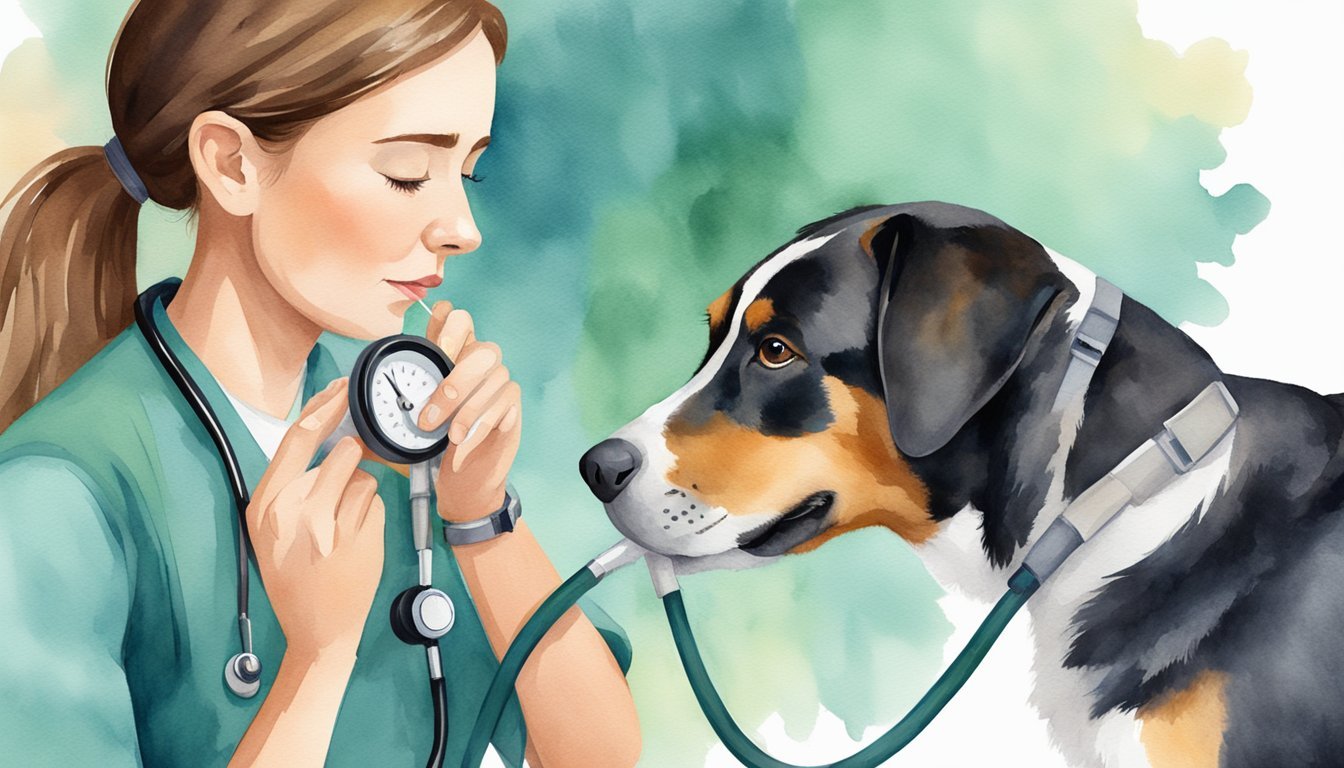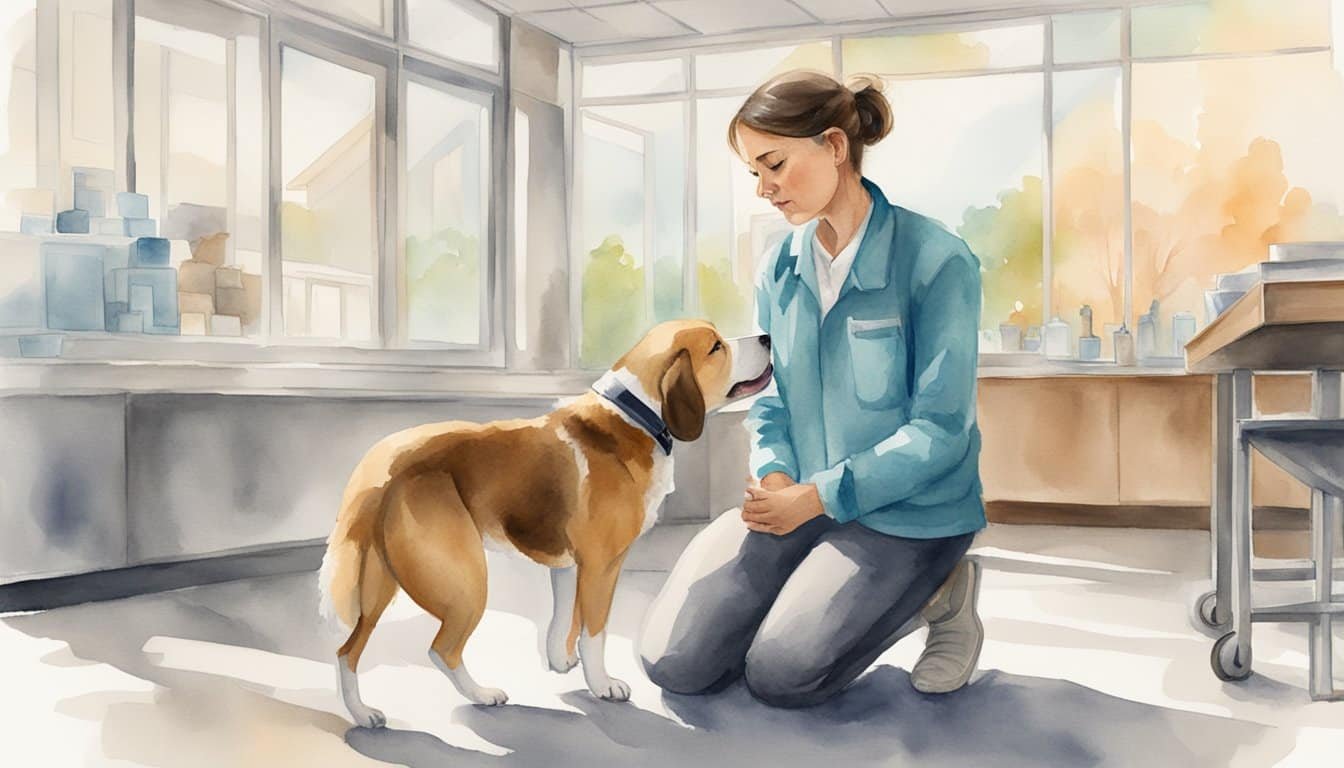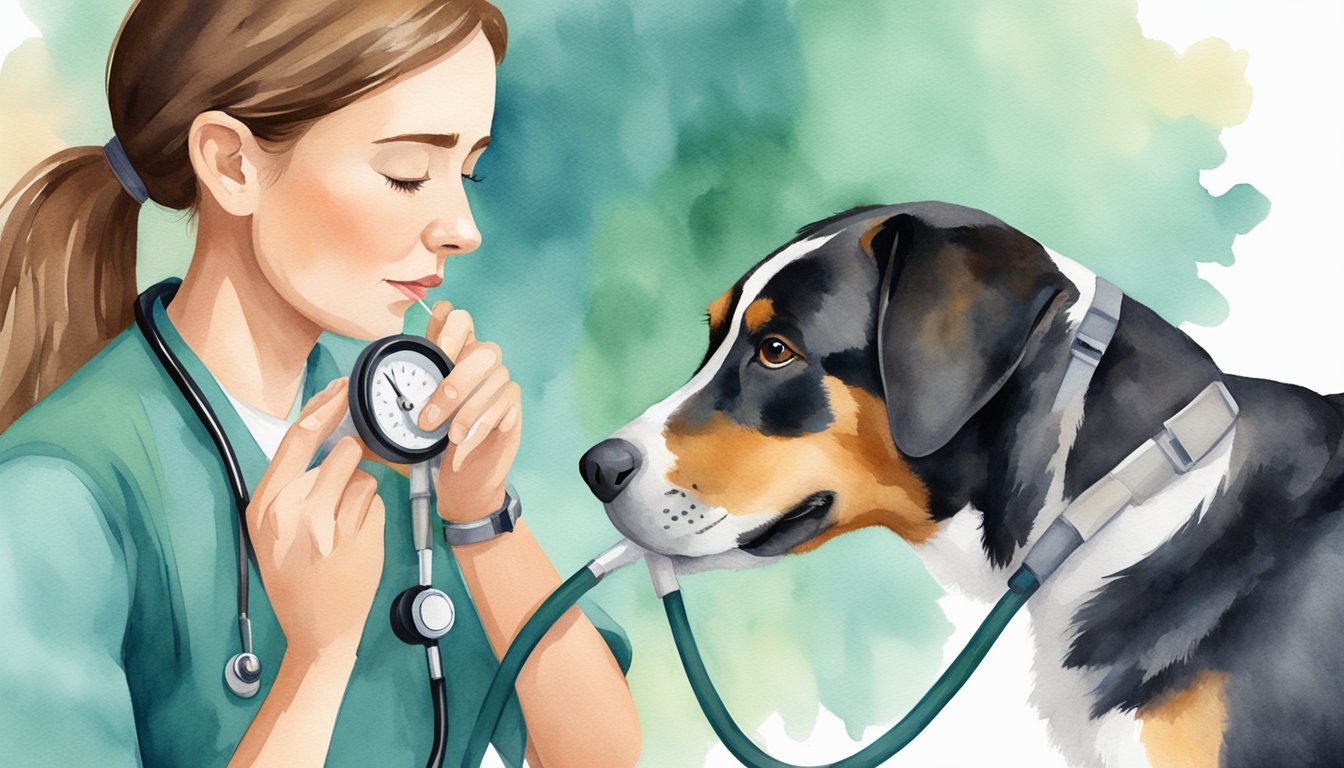Understanding Dog Respiratory Infections
Diving into the world of dog respiratory infections reveals a complex interplay between various pathogens and the environments that can foster their spread. From defining what constitutes a respiratory infection in dogs to discussing symptoms and prevention, there’s a lot to unravel.
Defining Respiratory Infection in Dogs
A respiratory infection in dogs is any disease that affects the parts of the body involved in breathing. This includes the nose, throat, airways, and lungs. Such infections can be caused by various pathogens, including viruses and bacteria.
Common Causes and Types
Respiratory infections can stem from several origins, two common culprits being viral and bacterial pathogens. Viral infections like canine influenza are common, but one of the most well-recognized bacterial infections is kennel cough, also known as canine infectious respiratory disease complex (CIRDC). This condition can result from bacterial agents such as Bordetella bronchiseptica and is often associated with shelter environments.
Symptoms of Respiratory Infections
Dogs with respiratory infections exhibit symptoms ranging from coughing and sneezing to nasal and eye discharge. Some may show lethargy and a reduced appetite, signaling the need for a veterinary consultation.
Contagion and Prevention
These diseases can spread rapidly among canines, especially in close-contact environments such as kennels. Prevention strategies include vaccination, maintaining good hygiene in dog facilities, and isolating infected dogs to control the spread of the disease. Regular awareness and proactive measures are key to keeping the sniffles at bay.
Diagnosis and Treatment of Canine Respiratory Infections

When a dog shows signs of respiratory distress, it’s crucial for a thorough diagnosis to be made to determine the underlying cause, which can range from viral infections like canine influenza to bacterial ones like Bordetella bronchiseptica. Treatment and management are tailored to the dog’s specific needs, often involving a combination of medications, supportive care, and vaccines.
Diagnostic Procedures
Veterinarians conduct a series of diagnostic tests to identify the causative agent of respiratory infections in dogs. This includes physical examinations, where they listen to a dog’s lungs and observe for any respiratory distress, and may involve laboratory tests like complete blood counts or nasal swabs. In more severe cases, advanced imaging such as x-rays or ultrasounds can be necessary to check for pneumonia. Identifying whether the infection is viral or bacterial is critical for determining the best course of treatment.
Treatment Options
For bacterial infections, antibiotics are the mainstay of treatment, while antiviral medications may be needed for viral infections. A veterinarian may also prescribe anti-inflammatory medications or bronchodilators to alleviate symptoms. Treatment plans are tailored to each dog’s condition and the specific pathogen involved. For instance, infections with canine influenza virus require different medications compared to bordetella infections.
Supportive Care and Management
Alongside direct treatment, supportive care is essential to aid in a dog’s recovery. This includes maintaining proper hydration, providing a quiet and clean environment, and possibly hospitalization for more severe cases where oxygen therapy or intravenous fluids might be necessary. Owners are advised to practice good hygiene and isolation practices to prevent the spread of the infection, especially because of the variable incubation period of different pathogens.
Role of Vaccinations
Vaccines play a crucial role in the control and prevention of canine respiratory infections. Vaccinating dogs against known pathogens like canine influenza virus and Bordetella bronchiseptica helps to reduce the chances of both symptomatic and asymptomatic infections. Regular vaccinations, as part of a dog’s health regimen, are an essential component of responsible dog ownership and infection control measures.
Impact and Considerations for Dog Owners

When it comes to respiratory infections in dogs, owners face a multifaceted challenge. They must navigate disease prevention, understand the influence of various factors on their pet’s health, and seek professional guidance when needed.
Navigating Outbreaks and Epidemics
Outbreaks of canine infectious diseases can spread rapidly through locations where dogs congregate, such as kennels, dog parks, and boarding facilities. The American Veterinary Medical Association emphasizes the importance of being aware of signs that point to a surge in respiratory infections among dogs. During an outbreak, limiting exposure by avoiding crowded dog areas can significantly reduce the risk of a pet becoming contagious or catching an infection.
Environmental and Social Factors
Several environmental and social factors play a crucial role in a dog’s risk of respiratory infection. Poor ventilation in indoor spaces is a known contributor to the spread of airborne diseases. Stress, whether from a new environment or social interactions, can also weaken a dog’s immune system, making them more susceptible to illness. Dog owners are encouraged to enhance their pet’s living conditions with good air flow and minimize stressors whenever possible.
Consulting with Experts
Seeking advice from experts is vital for the well-being of a furry companion. The American Veterinary Medical Association offers resources for dog owners to understand how to prevent transmission of infectious diseases. In addition, regular check-ups with a trusted veterinarian allow for up-to-date vaccinations and health screenings. Experts also advise practices such as washing hands before and after handling pets, especially during a disease surge, to prevent cross-species transmission between dogs and humans.
In managing the health risks associated with dog respiratory infections, informed and attentive care is key. Owners should stay current with the latest research and expert recommendations to provide their pets with a safe and healthy lifestyle.

